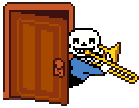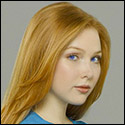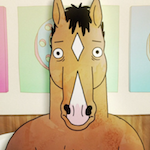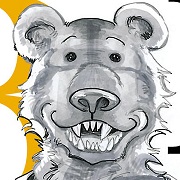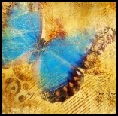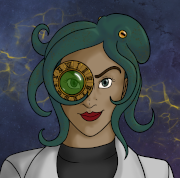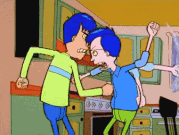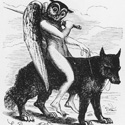|
3Romeo posted:That's true. But when it comes to over-the-top fantasy fights, the action tends towards the same vaguely homoerotic mechanics. He blocked the blow. Delivered a backhanded riposte. Penetrated his enemy to the hilt. Always makes me think of the Schwartz fight in Spaceballs. If you want to write good, interesting fantasy, you'll need something different. Looking at other genres is a good place to start. I think that the reason critics are snobbish about fantasy is not the presence of action scenes but rather the focus on plot over character and the general tendency for fantasy writers to be relatively poor wordsmiths. The fact that the genre is highly derivative doesn't help. While there isn't anything inherently wrong with favouring plot over character (sometimes its a nice change of pace from novels where little to nothing of any real interest actually happens), the fact that the plot tends to be the same 'retrieve tokens A, B, C, defeat villain X, get the princess' really kills the genre in terms of respectability. Obviously any genre will produce some stuff that is worth reading, but it seems like in general fantasy deserves whatever reputation it has.
|
|
|
|

|
| # ? May 14, 2024 08:54 |
|
That being said, I think I read mostly fantasy and I read about one book a year that has elves in it, let alone any of the others. The genre has its problems by the truckload but I think a reliance on Tolkien's races has lessened drastically over time.
|
|
|
|
I know a guy who literally said "I don't care about characterization I just want a good story" and I wanted to vomit in my mouth.
|
|
|
|
General Battuta posted:Brandon Sanderson is many things, but a boundary-pushing explorer of the fantastic is not one of them. He's a conservative fantasy writer in several senses. Mistborn isn't incredibly written or ground breaking in most ways, but it isn't the typical fantasy story we see paraded out that might as well be another D&D game or Tolkien clone. Your Dead Gay Son posted:I know a guy who literally said "I don't care about characterization I just want a good story" and I wanted to vomit in my mouth. CB_Tube_Knight fucked around with this message at 21:58 on Feb 24, 2014 |
|
|
|
CB_Tube_Knight posted:Mistborn isn't incredibly written or ground breaking in most ways, but it isn't the typical fantasy story we see paraded out that might as well be another D&D game or Tolkien clone.
|
|
|
|
Soulcleaver posted:Didn't Sanderson say in an interview or podcast sometime that he wanted Mistborn to draw upon the heaps of tired fantasy cliches but do something fascinating with them? Tropes like the chosen one, evil overlord, thieves' guilds, etc.? I think he might have said that during Writing Excuses. Honestly, I find him to be the least likable person on the podcast. He seems to know some good stuff, but personality-wise I just find him grating. Mary and Dan are much more enjoyable to listen to and I've met her in person and she's very nice. The tagline for the first Mistborn: Hero of Ages is something along the lines of "What happens when the hero of ages fails".
|
|
|
|
CB_Tube_Knight posted:Stunning argument, but you don't actually prove anything without saying how he's the same as all the others. Like I said the creatures in the Mistborn books (the four of them thus far) don't resemble other fantasy creatures with the exception of shape-shifters. The magic system is interesting, well thought out and well explained/defined. At least the first two books are deconstructions of the average fantasy tropes ("the hero of ages has failed" and "completion of destiny"). Even the society isn't exactly placed in exactly the same kind of European style setting a lot of fantasy is. Female main character, which isn't uncommon anymore, but it's still not as common as male characters in the lead in high fantasy. Nor is the fact that the girl isn't just a man with breasts and a vagina. She behaves like a teenage girl. I was going to make an articulate response but it sounds like we're on the same page about Sanderson (he is pretty mediocre but far from the shittiest), so, uh, worth it? I just didn't want Impressionable New Readers getting the sense that he was a particularly cutting-edge author of experimental genre fiction.
|
|
|
|
General Battuta posted:I was going to make an articulate response but it sounds like we're on the same page about Sanderson (he is pretty mediocre but far from the shittiest), so, uh, worth it? I just didn't want Impressionable New Readers getting the sense that he was a particularly cutting-edge author of experimental genre fiction. Yeah, I'm not going to fawn over the guy. I think that he just has some good stuff going on under all of the weirdness. Sorry if I came off as snippy.
|
|
|
|
Sanderson actually has a few Youtube lectures up that talk about fight scenes. https://www.youtube.com/watch?v=gyTrlsuwZug
|
|
|
|
Helsing posted:I think that the reason critics are snobbish about fantasy is not the presence of action scenes but rather the focus on plot over character and the general tendency for fantasy writers to be relatively poor wordsmiths. The fact that the genre is highly derivative doesn't help. I think you and I are on the same page here. For me, generic action scenes are a smaller version of the major issues with fantasy novels. That is, while they may be well-written, they often don't have any kind of meaning or nuanced thought behind them. That doesn't make them necessarily bad, but like you point out, they're derivative, which makes them shallow. I hate to bring in video games as an example,* but what keeps coming to mind is Morrowind. The engine was poo poo and the graphics were poo poo but there was a crazy sense of magic and mystery--and a pretty goddamned great backstory--in an alien world and it loving owned bones because it was so original. Oblivion and Skyrim are generic Tolkien/Nordic derivatives, respectively, and the experience suffers as a result. *they're the bane of people who want to write; I can go into detail about this if anyone really wants me to (it's a lecture I give my students), but I guarantee it'll be academic and generally pretty loving awful to read Asbury fucked around with this message at 04:04 on Feb 25, 2014 |
|
|
|
I would love for you to go into detail, actually.
|
|
|
|
Yeah, as somebody who plays maybe too many video games, I suspect I need to hear this. Not that I've ever taken cues from video game writing, and frankly I'm not all that interested in fantasy (as liberating as it sounds), but you've got me curious.
|
|
|
|
I'm going to guess that it has something to do with 99% of video game plots being driven by the act of killing all the bad guys, which is anathema to any work in a medium where you, the audience, do not directly contribute to bad-guy killing.
|
|
|
|
I'm going to post that poo poo on this other forum because the writers there think all they need is high school English, manga and video games.
|
|
|
|
I've played thousands of video games and I run a gaming review site and I still agree with everything 3Romeo said. Video games are just about the worst source of writing you can find this side of TV Tropes. There are occasional exceptions like Planescape: Torment, but overall it's not a medium worth taking inspiration from if you want to be a good writer.
|
|
|
|
Okay. Iím going to start this off with an rear end in a top hat statement that Iím sure Iíll have to defend: thereís only one game Iíve played that I believe is equal to literature--that is, itís something where the conceit of the game leaves room for both player behavior and engine issues while still being able to be thematically interpreted in different ways. That game is Planescape: Torment, which is pretty much a book anyway. I mention that because I want to use it as the exception that proves the rule. First: games, by their nature, are hard to analyze the way youíd analyze a book. Theyíre a dynamic experience, which means that while the macro story might stay the same (or have variations of an ending), the micro story changes by player. Say, for example, weíre playing Deus Ex. Weíre in the ĎTon after the hostage crisis, and weíre talking to Gilbert and Sandra Renton. Weíve just saved their hotel, weíre in a moment of catharsis following a small arc of story (inciting incident: hostage crisis; action: shooting NSF; complication: Mr. Renton with a gun to his head; resolution: greasing motherfuckers with my totally-not-a-cigarette-lighter stealth pistol), and now we, as the player, have two options: A) do we walk away like a hero, feeling that this was a small test for our protagonist and a microcosm of the larger plot, or do we B) prod them with the prod, spray them in the face with a fire extinguisher, baton them in the rear end to knock them out (?), then shoulder the corpses and leave them in the clinic next to the guy who autistically asks about the widowís son? Donít mean to point out the obvious, but such a huge range of actions, which are a benefit to the game (that is, player freedom), is a detriment to any nuanced interpretation of the story. If your protagonist does plot-required good deeds but spends his time shooting children and stealing everything that isnít nailed down, thereís a huge range in behaviors that are irreconcilable with theme, unless your theme is about the fun in being totally loving nuts. The mechanics get in the way of character. Some games mitigate this by forcing the player into actions via cutscene, but even then, those actions have no emotional weight because they donít take into consideration the prior actions of the player. The most egregious example I can think of is Ezio in Assassinís Creed 2. I spent the whole goddamned game killing everyone I could with every weapon I had in every creative way I could think of, and then, at the climax, I kneel over the Pope--the architect of Ezioís misery--and get a sudden case of conscience. Like, I got more bodies on me than Ted Bundy, most of them innocent guys just doing their job, and I canít kill this one fat corrupt turd because the writers couldnít think of a way to have the player meet the antagonist while not completely ignoring the historical fate of the character. In short, this fails as well, because the medium is trying to have it both ways (player freedom and fixed story) and the result of those two conflicting goals is average at best and laughable at worst. Second: game engines are poo poo for nuanced characterization. With the exception of some fantastically animated and voiced characters (Iím thinking of FarCry 3 here, and Vaas, who is legit loving terrifying), most NPCs are mannequins. They exist for the playerís pleasure and knowledge and are in the game to sell goods, provide quests, and spout exposition. There are exceptions to this rule--like Vaas in FarCry, Elizabeth in Bioshock is a rare great character--but even then, those characters are still at the mercy of the player and react to the playerís actions. There are way too many simple models in a game to establish a baseline for any kind of character-driven analysis. One of the few games to try having characters with specific behaviors (L.A. Noire) had some pretty hilarious bugs, as I remember. And speaking of bugs, remember that New Vegas video where Doc Mitchellís head pivots around when you wake up in Goodsprings? If thatís intentional, that tells me (the audience) that Vegas is loving Silent Hill. If itís unintentional, it completely ruins the arc of the experience (which, youíll remember, just involved the player getting dramatically POV shot in the head). So what does all this have to do with writing? To put in in a single sentence: there are way too many variables to make a valid and cohesive interpretation when it comes to games and if you use games as a metric for good writing your own writing is going to come off the same way. You characters will be flat the way NPCs are flat, your story arcs will be individual quests and wonít tie into the larger plot, your dialogue will be atrocious, and while you might gain an eye for the detail in the world, it isnít doing you any favors, because youíre looking at the parts instead of the whole. Games are collections of parts that donít always work with each other. A written story is a whole thing where every piece must work with itself. If you narrate a game, youíre going to lose. And I wonít touch on the things you pick up by using books as your metric of quality instead of movies or television or games (things like lyricism, vocabulary, chapter arcs, and general other traits of the language, including simple things like grammar). Theyíre self-evident. There are games with good stories, donít get me wrong. And there are games with good characters (Mass Effect), good setting (Morrowind), and good themes (New Vegas) But the stories the players make and the stories the writers want the player to experience are always in conflict. This is not something you consider when youíre writing a story. The audience experience is completely different and they are not compatible. You pull them in with language, not player mechanics. To wrap this up, let me bring it back around to Torment. What makes it such a brilliant game is that it the plot allows for random player actions and the setting allows for bugs in the engine. Sigil is a place where literally anything can happen and everything does. In addition to that, it has memorable characters, emotional complexity, a stunningly deep story that peels back in layers the deeper you go, and a nuanced theme ("What can change the nature of a man?Ē) that leaves the reader/player with something to think about after theyíre done. Itís a game that doesnít let the medium get in the way of the message. The worst thing about it is that itís a game at all. edit: gently caress was I seriously beaten on talking about Torment? Asbury fucked around with this message at 18:51 on Feb 25, 2014 |
|
|
|
3Romeo posted:edit: gently caress was I seriously beaten on talking about Torment? 
|
|
|
|
Now, I'm not disagreeing that video games are not a good source of inspiration or 'vocabulary' for writing in general, but I have a question. If you were going to analyze something like Deus Ex, why wouldn't you just ignore all the "random" things that can happen? I mean, if you read a wikipedia summary of the plot, it wouldn't say things like "Then after clearing out 'ton, JC "FuckBat" Denton GEP gunned down every civilian in the area before moving on." Although, I see the purpose of your critique to focus more on a video game as an entire work, vs a book as an entire work. Ignoring gameplay/engine quirks would be kinda of like ignoring that an author can't use dialog tags properly, or their book was printed really bad, huh?
|
|
|
|
Gonna side step the video game thing (and that whole can of worms), but I found the action scene I liked from what I think might be Men's Health or something:quote:"You don't have to hit an opponent to defeat him," Alex said. "You can fake it and get him to do what you want. You must remember that the attack must be constant. Motion is life; stillness is death." The action is believable, clearly told, credible, and it even has a little arc to it.
|
|
|
|
Your Dead Gay Son posted:Although, I see the purpose of your critique to focus more on a video game as an entire work, vs a book as an entire work. Ignoring gameplay/engine quirks would be kinda of like ignoring that an author can't use dialog tags properly, or their book was printed really bad, huh? Gameplay quirks::poor grammar is about as close as I can come as a comparison, yes. But it's like comparing apples and, I don't know, Relic apples that might need a day-one patch and have paid digestion DLC. poo poo's almost Dali-esque. My argument is hard to articulate because video games, as a form, are so young. For literature or music or cinema, we have a set of jargon to help define and explain the way we feel and think about the art form, and we're applying that jargon to a format that where the words just don't work because there are too many random events (intentional though the player or unintentional through bugs)to make a solid analysis of, say, character motivations. I mean, you can look at the plot summary of Deus Ex and talk about how it ties into other conspiracy theories, but you can't talk about why JC does what he does because every experience he'll do something different. It's like trying to lay a foundation on quicksand. There are other issues, too--the kind that are a little less academic and a little more practical. Some designers make fun levels and then thread a story through them. This is the same as designing a fantasy world first and then coming up with a story second. You don't want to be an anthropologist because it's easy to get lost in the fun of building a world in your imagination instead of, you know, telling the loving story. Even books like Neverwhere or Dune, where the world is the title character, aren't exempt. Then you have issues like stilted, expository dialogue ("You, the master of picking locks"), scenes that are meant to be dramatic but come off as cheesy (Liliana's song in Dragon Age), characters with no physical quirks or ticks that serve as tells (the evolution in detail is starting to fix this, a little, but it's still a concern). Games, to put it bluntly, are bad models for beginning writers. There's some cool poo poo you have a response to and steal for your own work (Kirkbride's totally loving nuts writing for the Tribunal in Morrowind comes to mind), but for a beginning writer, reading books and learning how they work holistically (eg, having theme emerge from character) is far more important than writing veiled fan fiction because you liked the way a game made you feel. To tie this back into the fantasy discussion: a lot of fantasy is Tolkien fan fiction. Sword of Shanara, the Riftwar, Dragonlance--at their best, they're variations on a theme and setting; at their worst, they're just rehashes of older work. I don't fault their authors for this (and I loved their stuff when I was a kid), but the more you read, the more you'll see how shallow they are. If that's what you read, that's what you'll write. The same idea goes for games, I think. If you play them exclusively, you'll write the kinds of stories they tell, and those stories are limited by the form, which means you won't learn about the more complicated aspects of fiction that make fiction work in ways that games can't quite touch yet. Asbury fucked around with this message at 15:55 on Feb 25, 2014 |
|
|
|
A bit of a tangent, but how many recent (within the last 10 years or so) fantasy series still follow the Tolkein trend? I haven't read a wide variety of it, but I've still apparently managed to avoid nearly all these unending Tolkein ripoffs I keep hearing about. The closest to that were also the ones I ended up putting down a few chapters in, or skimming by the time I got to the third book after a promising start. I'm not so sure it's as common a trend these days as the complaints about the fantasy genre as a whole would have you think. Granted, now the trend seems to be relentless grimdark shock value, which is not an improvement.
|
|
|
|
3Romeo posted:A bunch of interesting stuff What did you think about the big mid-cut scene in the original Bioshock? I recall it as one of the few videogame narratives that actually shook me, because of its meta commentary on what I, the player, was doing in video games generally. I say this as someone who always chooses the 'good' narrative in games, but it still was quite affecting. To me, the meta effect on the player is the promise of video games, and that's what a good video game writer will be looking to do; I agree it doesn't help much with prose writing.
|
|
|
|
It depends on what your criteria are. For me, Tolkien-influenced means any combination of the following things: - High fantasy setting. Castles, mines, mountains, ruins, magical marvels from ancient civilizations. - Expansive lore that people confuse with depth. Most of it sounds like something Rick Moranis said in Ghostbusters. "During the rectification of the Vuldrini, the traveler came as a large and moving Torg! Then, during the third reconciliation of the last of the McKetrick supplicants, they chose a new form for him: that of a giant Slor! Many Shuvs and Zuuls knew what it was to be roasted in the depths of the Slor that day, I can tell you!" - A quest that doubles as a travelogue. This isn't just a fantasy thing, of course. But it became a trope of the genre. - The last heir of a dead dynasty reclaiming their birthright. - Invented languages. Especially languages with apostrophes where they don't belong. - Races other than human. - Dragons and magic. - Epic war and epic stakes and epic need of an editor to cut away the fat. - A story that exists only for plot and character. This isn't always a bad thing, but I've never read anything in the genre that was as both complex and subtle as LeGuin's "The Ones Who Walk Away From Omelas". That, to me, is fantasy done well. She alluded to more awesome ideas in five or six pages than, say, Martin has in six thousand. Good writing is a game of subtlety and implication. I'll go ahead and admit here that I haven't read any new fantasy in probably five years or longer. I'm sure there's some good, original fantasy out there that doesn't touch on any of these fantasy tropes, and I'd like to read it. But mostly when I walk down that aisle in Barnes and Noble these days, all I see variations on the same set of tropes, and the blurbs on the back don't help. Seldom Posts posted:What did you think about the big mid-cut scene in the original Bioshock? I recall it as one of the few videogame narratives that actually shook me, because of its meta commentary on what I, the player, was doing in video games generally. I say this as someone who always chooses the 'good' narrative in games, but it still was quite affecting. To me, the meta effect on the player is the promise of video games, and that's what a good video game writer will be looking to do; I agree it doesn't help much with prose writing. It was absolutely brilliant. The story used the medium to sell the message in the only way the message could be sold. (By which I mean, that twist would have no meaning if you're watching it or reading it since it's a commentary on player interaction.) But then the game does nothing with that idea. It just reverts back to FPS tropes. The final fight is straight out of Doom 2. VVV This is a legitimate question, and I don't mean for it to come off snarky: Can you recommend any newer fantasy that dodges most of those traits and has thematic and emotional depth? Because I'd really like to read it and maybe change my viewpoint. Asbury fucked around with this message at 18:11 on Feb 25, 2014 |
|
|
|
Riftwar, Dragonlance, and Sword of Shannara are all 30+ years old. They might be what you think of when you think "fantasy," but they are not representative of the current fantasy market. There are plenty of fantasy novels that are not Tolkien fan-fiction-- in fact probably most of what is being put out today. Edit: okay if anything with magic or races other than humans is a Tolkien-derivative, then maybe not, but that's a pretty huge definition. Dr. Kloctopussy fucked around with this message at 18:04 on Feb 25, 2014 |
|
|
|
quote isn't edit
|
|
|
|
3Romeo posted:It depends on what your criteria are. Yeah, the final fight was disappointing. I think the point was supposed to be that your choices (about the little girls) were supposed to be the only thing you were allowed to choose and thus create an actual poignant ending, since it turns out you did have some agency after all. However, they wimped out and basically created two different 'ever after' endings. The game could've made its point if your choices regarding the little girls actually did impact what happened to you as a player. (i.e. didn't save them? Your heartlessness means you auto lose the big fight! Or did save them? Your lack of ruthlessness means you auto lose the big fight!) Of course nerds everywhere would've tanked the sales of the game, but it would've stood as an actual work of art. 3Romeo posted:VVV I don't think you need newer fantasy for that: Try these by John Crowley: The Deep, Doubleday (1975) Beasts, Doubleday (1976) Engine Summer, Doubleday (1979) Little, Big, Bantam (1981) Or this: http://en.wikipedia.org/wiki/One_for_the_morning_glory (written in '96). edit: grammar, hurr.
|
|
|
|
3Romeo posted:This is a legitimate question, and I don't mean for it to come off snarky: Can you recommend any newer fantasy that dodges most of those traits and has thematic and emotional depth? Because I'd really like to read it and maybe change my viewpoint. Alif the Unseen, by G. Willow Wilson, is also pretty fuckin' cool. It's about a modern day hacker from the poor quarter in Dubai suddenly getting tangled up with jinn and the police state at the same time. There's also The Iron Dragon's Daughter, by Michael Swanwick. It deliberately says "gently caress you" to fantasy tropes and he set out to write the most unfantasy thing he could; as such, it's a coming of age story about a young girl who makes a bunch of mistakes and goes to college and meanders through three or four stories of varying weirdness. It's great. I am kind of burned the gently caress out on fantasy though because of the same poo poo you posted; I'd kill to hear some more recommendations. These were the only three books that jumped to mind that I'd actually feel comfortable recommending to anybody to read; there's authors like Mieville who I enjoy but I never recommend because the language is just too annoying. Wungus fucked around with this message at 18:34 on Feb 25, 2014 |
|
|
|
Little, Big looks like a good place to start. Even Bloom liked it, and that's saying something. Thanks for the recommendations; I'll throw them on my pile.
|
|
|
|
I hate to keep dragging this back into video game chat, but I'm just too curious: 3Romeo, have you ever played Spec Ops: The Line? I'm not saying you'd be into it, but again, I'm curious if you have any thoughts on it story-wise. (Just in case you haven't heard of it and you're curious, here's an LP of it.)
|
|
|
|
The most recent Tolkien ripoff I can think of is Eragon. A professional publisher probably gets a dozen similarly uncreative submissions in a day.
|
|
|
|
Soulcleaver posted:The most recent Tolkien ripoff I can think of is Eragon. A professional publisher probably gets a dozen similarly uncreative submissions in a day. Eragon was also written by a literal child. I am trying to think of things that don't include the "tropes" listed by 3Romeo, but since his list would exclude things like Beowolf (castles, magic, other races) and The Oddesey (travelogue, magic, other races) as "Tolkien-Derivatives," it is going to take me a while longer. Edit: if you want to complain about fantasy being derivative, it's all urban fantasy vampire poo poo now, so blame Laurel K. Hamilton or something. Dr. Kloctopussy fucked around with this message at 20:02 on Feb 25, 2014 |
|
|
|
I'm a mid 20s author working on my first novel. I'm having a great time. It's a realistic novel about a dysfunctional family that goes on a family vacation to a resort in Ft. Lauderdale to hopefully become a more cohesive unit. The hotel itself is also supposed to represent America and I have some scenes that are satirical. Hopefully it works. Anyways, I wanted to get thoughts on an idea I had: to read lots of debut novels in my genre (which I guess is Literary Realism) written by people around my age. I feel like reading debut novels is going to teach me a lot about what's being accepted right now from newcomers, and could learn some things about length, structure, pace, that kind of thing. I think it could even be more beneficial than reading the greats, in some ways. Anyone agree? What would be some good examples from the last year or two?
|
|
|
|
3Romeo posted:- Races other than human. I'm only quoting highlights that stood out, but that's such a wide definition it's effectively meaningless. Every fantasy book that uses magic is Tolkein-esque, is it? Pack it up and go home, everyone, that one guy already wrote the whole genre. Sarcasm aside, fantasy is by definition a form of escapism, things that can't happen in real life. It is pretty sad that a lot of it is derivative, especially with so much focus on medieval European settings, but I doubt it's much moreso than with other genres or litfic. Fantasy fans just tend to be more vocal, perhaps. The SF/F thread over in TBB is pretty depressing for how often it recommends the same books, over and over and over. As for recommendations... My favorite author is Carol Berg - strong focus on characters and solid plots, which apparently counts as Tolkein-esque to you, and magic and non-humans exist, but not in any way remotely like LotR. Her Rai-kireh series has a Middle Eastern kind of setting rather than medieval European. I prefer her Lighthouse Duet and Collegia Magicka series, which are also kind of European but with a different sort of take on it. Johannes Cabal the Necromancer by Jonathan L. Howard is hilarious, witty, and about as far from Tolkein as you can get. Diana Wynne Jones is also pretty far off, and very fun. Among Thieves by Douglas Hulick is low fantasy with only minor magic and some great action scenes, falling in line with the previous discussion. Comparing video game writing to book writing gets strange. I have some ideas that would only work as games, whether because they heavily incorporate visual elements or because of the interactivity. Games are important for their way to convey some stories better than other media could, but it is rather like comparing apples to oranges.
|
|
|
|
3Romeo posted:For me, Tolkien-influenced means any combination of the following things: Alternatively you could just post No Fantastical Elements in every thread forever and not worry about it.
|
|
|
|
blue squares posted:I'm a mid 20s author working on my first novel. I'm having a great time. It's a realistic novel about a dysfunctional family that goes on a family vacation to a resort in Ft. Lauderdale to hopefully become a more cohesive unit. The hotel itself is also supposed to represent America and I have some scenes that are satirical. Hopefully it works. I don't have any novel suggestions, but I agree that your idea is very sound. Reading your market and finding out what people like about the literary realism genre (even if it's a 'thin' genre at that) is important. Your takes and ideas on those tropes or themes will be what sets it apart. It'd be like writing a mystery without having read any mystery novels! Edit: By thin, I mean not as thick in terms of literary "vocabulary" as like, the thriller genre, not shallow.
|
|
|
|
Dr. Kloctopussy posted:Eragon was also written by a literal child. I am trying to think of things that don't include the "tropes" listed by 3Romeo, but since his list would exclude things like Beowolf (castles, magic, other races) and The Oddesey (travelogue, magic, other races) as "Tolkien-Derivatives," it is going to take me a while longer. I think people are making a distinction in the type of fantasy. There's no shortage of paranormal romance stuff out there since the success of Twilight, but urban fantasy or modern fantasy has never really been grouped in with the Tolkien-brand of Elves and magic fantasy. Some people seem to have a pretty loose idea of what Tolkien derivative fantasy means. There's not really a concrete way to define it, but I want to say a few things. - In terms of magic, it seems to me that the magic is mysterious and never given hard fast rules. It's not used by the main heroes either, mostly. - Elves tend to behave like yuppies, Dwarves tend to be blue collar working types from mines and forges. These things are rarely deviated from and when they are it's a big deal (artistic outcast dwarf, city elf, etc). - Orcs, Orcs everywhere. Another thing that seems to be in these kinds of books is the type of black and white good versus evil idea that someone can be deemed completely evil based on their race or religion or other things like that. Though I guess that's not different from real world thought. Because of the popularity of the HBO show and the novels now, I worry that we're going to have to wade through ASOFAI clones for the next twenty years or so. I gave up on the books already and the show is wearing thin on me.
|
|
|
|
Dr. Kloctopussy posted:I am trying to think of things that don't include the "tropes" listed by 3Romeo, but since his list would exclude things like Beowolf (castles, magic, other races) and The Oddesey (travelogue, magic, other races) as "Tolkien-Derivatives," it is going to take me a while longer. Yeah, some of my list casts too big of a net. I absolutely agree with that. But being derivative, as far as I think of the word, requires coming after. Tolkien didn't invent the quest or other races (or anything in my list, really), but he combined them in such a way that the different parts made a certain impression that touched off a whole generation's imagination and writers of that generation kept wanting to return to Middle Earth. The more I think about this, though, I think my knee-jerk definition of fantasy isn't as strong as I'd like it to be because it's outdated. For one thing, now that I'm looking through some of the other books people mentioned in the thread, it seems like a lot of it was written as a response to the Tolkien mythos, or at least tries to put an original spin on some of the traits. (There's also a lot of vampire poo poo; oh boy were you right about that.) I need to get caught up on some of this and see if it's worthwhile. In re: Spec Ops--I've never played it, but from the description in that link, it sounds like an interesting premise: a game (Spec Ops) based on the themes of a movie (Apocalypse Now) based on the themes of a book (Heart of Darkness). I'd be interested to see how those themes change between the different mediums. That is, how does the audience respond to being complicit in the horror (the game) compared to being a passive observer (the movie) or being privy to the narrator's/Marlow's inner thoughts (the book)? If the game can pull those themes off well, could a player who's never read the book come to the same conclusions about violence and power that Marlow did?
|
|
|
|
blue squares posted:I'm a mid 20s author working on my first novel. I'm having a great time. It's a realistic novel about a dysfunctional family that goes on a family vacation to a resort in Ft. Lauderdale to hopefully become a more cohesive unit. The hotel itself is also supposed to represent America and I have some scenes that are satirical. Hopefully it works. A lot of people here are in similar situations to you writing-wise, including myself, but I disagree -- with a caveat. Reading successful works by your peers is absolutely educational and you should do it, but it's going to be less educational, maybe even detrimental, if you don't have any context for those works. The only way you can gain that context is by reading widely outside your genre, beyond new writers, beyond recent fiction. In ADDITION to the niche you see yourself in. The better you can understand the scope of what is possible in literature, the better you can understand the place you want to have in it.
|
|
|
|
Echo Cian posted:Comparing video game writing to book writing gets strange. I have some ideas that would only work as games, whether because they heavily incorporate visual elements or because of the interactivity. Games are important for their way to convey some stories better than other media could, but it is rather like comparing apples to oranges. Galatea is a game, not a book. It could never be a book (it'd lose something even as a CYOA). It doesn't try to deconstruct its genre. It doesn't, arguably, have a story. But I think it's deep in a real way that the more commonly cited examples aren't. I don't feel Torment is nearly as good as people like to say. I mean, it's very good in comparison when you consume a lot of video games, but... the setting is taken from Dungeons and Dragons sourcebooks, there's a ton of filler, the pacing is off in parts, and the climactic moment with Ravel is undermined by the main character's amnesia. And it is a bit pretentious and very up front about its Big Ideas in a way that when you finish it you might say "it makes you think" when it really has little relevance to real life (depending on if you subscribe to philosophical dualism).
|
|
|
|

|
| # ? May 14, 2024 08:54 |
|
3Romeo posted:In re: Spec Ops--I've never played it, but from the description in that link, it sounds like an interesting premise: a game (Spec Ops) based on the themes of a movie (Apocalypse Now) based on the themes of a book (Heart of Darkness). I'd be interested to see how those themes change between the different mediums. That is, how does the audience respond to being complicit in the horror (the game) compared to being a passive observer (the movie) or being privy to the narrator's/Marlow's inner thoughts (the book)? If the game can pull those themes off well, could a player who's never read the book come to the same conclusions about violence and power that Marlow did?
|
|
|






